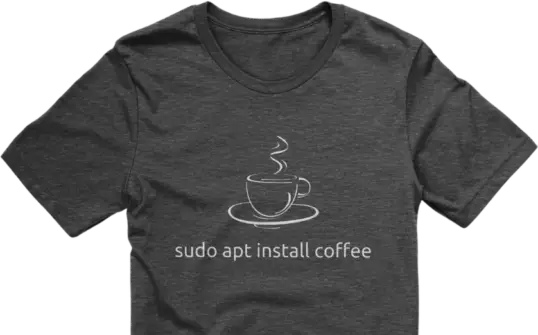The Raspberry Pi 400 is a complete computer with a built-in keyboard, so why not turn it into a classic PC game system? In this video, I talk about a recent project I worked on for fun where I configured RetroPie to run various MS-DOS games via DOSBox.
Setting up the Pi 400
Install RetroPie onto an SD card
You can download RetroPie from the official download page. Once downloaded, you can use usbimager to flash the downloaded RetroPie image onto the SD card (which will completely overwrite it). You can download usbimager from its official Gitlab page. After you finish flashing the SD card, insert it into your Pi 400 and boot it. It will start up, and then reboot again.
Enable SSH (optional)
Although not required, SSH is one method you can use to connect to your RetroPie installation. See the official documentation page for how to enable SSH in RetroPie.
Set localization options (optional)
If you’re not in the UK, you may have trouble with the keyboard layout in RetroPie. To resolve it, set the localization options accordingly. To do so, follow the documentation page for Raspberry Pi OS. Consider configuring the locale, keyboard layout, and timezone settings accordingly.
Enable DOSBox
By default, DOSBox is not included by default in RetroPie. To install it, open up a command shell inside RetroPie (I used SSH for this) and execute the following commands:
cd /home/pi/RetroPie-Setup/ sudo ./retropie_setup.sh
This will open the RetroPie-Setup script. Once there, navigate to “Manage Packages”, then “Manage Optional Packages”, then scroll down to “dosbox” and choose to install the binary.
Adding Games
Depending on the game, you can run the installer or just copy the files for the game into the appropriate directory. I created a specific directory for games:
mkdir ~/RetroPie/roms/pc/.data/
And then I copied files for each game to that directory.
Then, I created config files for each game and stored them in the /home/pi/RetroPie/roms/pc/ directory, and each file is a simple text file with a file extension of “.conf”. You’ll need one for each game. You can use a preincluded DOSBox config file as a starting template. For example, if you are planning to install Doom on your RetroPie, run the following command to create a file for the game as a starting point:
cp /home/pi/.dosbox/dosbox-SVN.conf /home/pi/RetroPie/roms/pc/Doom.conf
Then, tweak the /home/pi/RetroPie/roms/pc/Doom.conf file as needed.
Example config files
Here are a few examples of some config files I used in the build that was shown in the video.
Doom II
[sdl] fullscreen = true fulldouble = true fullresolution = desktop windowresolution = original output = openglnb autolock = true sensitivity = 100 waitonerror = true priority = higher,normal mapperfile = mapper-SVN.map usescancodes = false [dosbox] language = machine = svga_s3 captures = capture memsize = 16 [render] frameskip = 0 aspect = true scaler = normal3x [cpu] core = auto cputype = auto cycles = auto cycleup = 10 cycledown = 20 [mixer] nosound = false rate = 44100 blocksize = 1024 prebuffer = 25 [midi] mpu401 = intelligent mididevice = default midiconfig = [sblaster] sbtype = sb16 sbbase = 220 irq = 7 dma = 1 hdma = 5 sbmixer = true oplmode = auto oplemu = default oplrate = 44100 [gus] gus = true gusrate = 44100 gusbase = 240 gusirq = 5 gusdma = 3 ultradir = "U:\" [speaker] pcspeaker = true pcrate = 44100 tandy = auto tandyrate = 44100 disney = true [joystick] joysticktype = auto timed = true autofire = false swap34 = false buttonwrap = false circularinput = false deadzone = 10 [serial] serial1 = dummy serial2 = dummy serial3 = disabled serial4 = disabled [dos] xms = true ems = true umb = true keyboardlayout = us [ipx] ipx = false [autoexec] mount c "~/RetroPie/roms/pc/.data/doom2.pc" mount u "~/RetroPie/roms/pc/.data/ultrasnd" c: DOOM2.EXE exit
Mortal Kombat 3
[sdl] fullscreen = true fulldouble = false fullresolution = original windowresolution = 1280x800 output = openglnb autolock = true sensitivity = 100 waitonerror = true priority = higher,normal mapperfile = mapper-SVN.map usescancodes = false [dosbox] language = machine = svga_s3 captures = capture memsize = 16 [render] frameskip = 0 aspect = true scaler = normal [cpu] core = normal cputype = auto cycles = auto cycleup = 10 cycledown = 20 [mixer] nosound = false rate = 44100 blocksize = 1024 prebuffer = 20 [midi] mpu401 = intelligent mididevice = default midiconfig = [sblaster] sbtype = sb16 sbbase = 220 irq = 7 dma = 1 hdma = 5 sbmixer = true oplmode = auto oplemu = default oplrate = 44100 [gus] gus = true gusrate = 44100 gusbase = 240 gusirq = 5 gusdma = 3 ultradir = U:\ [speaker] pcspeaker = true pcrate = 44100 tandy = auto tandyrate = 44100 disney = true [joystick] joysticktype = auto timed = true autofire = false swap34 = false buttonwrap = false [serial] serial1 = dummy serial2 = dummy serial3 = disabled serial4 = disabled [dos] xms = true ems = true umb = true keyboardlayout = us [ipx] ipx = false [autoexec] mount c "~/RetroPie/roms/pc/.data/mk3.pc" imgmount d "~/RetroPie/roms/pc/.data/mk3.pc/iso/mk3.cue" -t iso -fs iso mount u "~/RetroPie/roms/pc/.data/ultrasnd" c: mk3.exe 0666 exit


